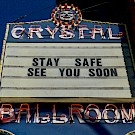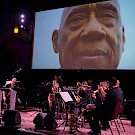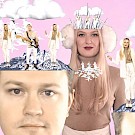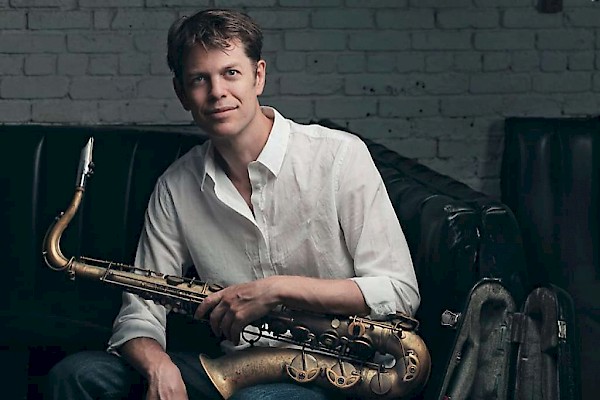 By now, the jazz virtuoso as a featured collaborator in pop and rock should hardly be novel. Joni Mitchell had Jaco Pastorius, Steely Dan had Larry Carlton, and even Q-Tip has leaned on the scintillating neologisms of guitarist Kurt Rosenwinkel. Yet, perhaps no such musician has had as brilliant or quietly vigorous a champion as David Bowie, whose keen eye—and ear—for talent was piqued by Stevie Ray Vaughan’s white-hot Texas blues, the ethereal soundscapes of Brian Eno, and now the far-reaching jazz progressivism of saxophonist Donny McCaslin, sought by Bowie and longtime producer Tony Visconti to apply broad strokes of edgy, tenebrous impressionism to 2016’s Blackstar, the English rock talisman’s marvelously enigmatic final statement.
By now, the jazz virtuoso as a featured collaborator in pop and rock should hardly be novel. Joni Mitchell had Jaco Pastorius, Steely Dan had Larry Carlton, and even Q-Tip has leaned on the scintillating neologisms of guitarist Kurt Rosenwinkel. Yet, perhaps no such musician has had as brilliant or quietly vigorous a champion as David Bowie, whose keen eye—and ear—for talent was piqued by Stevie Ray Vaughan’s white-hot Texas blues, the ethereal soundscapes of Brian Eno, and now the far-reaching jazz progressivism of saxophonist Donny McCaslin, sought by Bowie and longtime producer Tony Visconti to apply broad strokes of edgy, tenebrous impressionism to 2016’s Blackstar, the English rock talisman’s marvelously enigmatic final statement.
Long known in New York jazz circles for his forward composer’s instinct and volcanic dynamism, McCaslin’s professional career was catalyzed in the late 1980s through successive stints with vibraphonists Gary Burton and Mike Mainieri, who looked to the then 25-year-old McCaslin to take over for saxophone legend Michael Brecker in Steps Ahead, Mainieri’s enduring fusion project. After releasing a string of well-received acoustic jazz records as a bandleader, and partnering with the acclaimed big bands of orchestrators Gil Evans and Maria Schneider, McCaslin would reorient his approach at the suggestion of producer David Binney, embracing the prominent rhythmic figures and textures of contemporary electric jazz for 2011’s Perpetual Motion. Ensuing efforts, most notably 2012’s Grammy-nominated Casting for Gravity, saw McCaslin and his working band of drummer Mark Guiliana, bassist Tim Lefebvre and keyboardist/sound designer Jason Lindner, wade farther into the heavy beats and sound production championed by the likes of Squarepusher and Boards of Canada, whose song “Alpha and Omega” appears on the album.
McCaslin had, however, long since arrived at the apex of New York’s capacious body of jazz talent, appearing regularly at 55 Bar, the venerable, if modest, West Village club noted for being a preferred haunt of fellow saxophone phenom Chris Potter, former Miles Davis guitarist Mike Stern, and several others surely among the city’s premier instrumentalists. And in June 2014, it was 55 Bar to which Schneider would accompany none other than Bowie himself to hear McCaslin and his group while seated discreetly at a small table near the stage. Casting for Gravity had impressed Bowie and Visconti, as would McCaslin’s subsequent work on Schneider’s arrangement of “Sue (Or in a Season of Crime),” leading Bowie to summon McCaslin’s quartet for a series of recording sessions at SoHo’s Magic Shop studios in early 2015. Adopting an open, fluid approach and creative latitude that was, with some surprise, a longstanding hallmark of Bowie’s studio process, the group laid the groundwork for what would become Blackstar, the boldly elusive genre buster McCaslin now considers one of Bowie’s finest records.
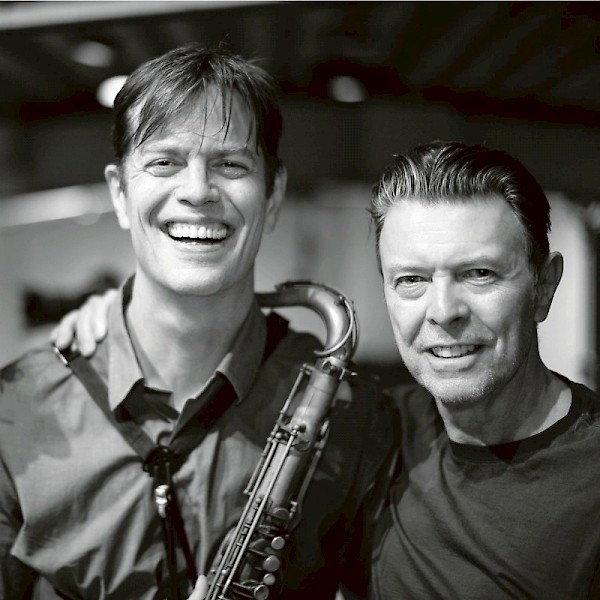 McCaslin with David BowieAt the time of Blackstar’s January 2016 debut, McCaslin was in the process of preparing material for Beyond Now, a quartet record largely set to mirror the EDM-tinged imprint of 2015’s Fast Future. However, the jarring suddenness of the 69-year-old Bowie’s passing from liver cancer, mere days after the Blackstar release, spurred McCaslin to revisit his concept for the album, which was refashioned as an homage to the late singer’s chameleonic artistic prerogative and the daring nonchalance with which he committed it to public record.
McCaslin with David BowieAt the time of Blackstar’s January 2016 debut, McCaslin was in the process of preparing material for Beyond Now, a quartet record largely set to mirror the EDM-tinged imprint of 2015’s Fast Future. However, the jarring suddenness of the 69-year-old Bowie’s passing from liver cancer, mere days after the Blackstar release, spurred McCaslin to revisit his concept for the album, which was refashioned as an homage to the late singer’s chameleonic artistic prerogative and the daring nonchalance with which he committed it to public record.
McCaslin and his quartet extend their prior electronica adventurism on Beyond Now, covering MuteMath's “Remain” and “Coelacanth 1” from Deadmau5’s while(1<2). “Glory” and “Beyond Now,” both McCaslin originals, showcase a more nuanced integration of the contemporary aesthetic and textures animating his recent creative projects. However, “Warsawa,” a bleak, elegiac impression of Cold War-era Poland composed by Bowie and Brian Eno for 1977’s Low, is undoubtedly the most emotive and moving of Beyond Now's nine tracks. Prepared as a tribute shortly after news of Bowie’s passing became public, McCaslin’s arrangement retains the funereal sobriety and sophistication of the initial recording. Yet, his saxophone introduces a marked humanity alien to Bowie’s original, at once conveying a sorrow, gratefulness and resolve that one cannot help but tie to McCaslin’s memory of his friend and counterpart.
With hope, the Blackstar recording and the incipient evolution of its many shades upon performance will also prove another catalyst for McCaslin, who, like so many of his colleagues, possesses an astonishing talent deserving of the wide credibility and renown that perhaps only David Bowie could bestow.
In support of the album, McCaslin is currently on tour, with a stop at Portland's Mission Theater on Friday, June 16. Ahead of this appearance, Vortex caught up with McCaslin to discuss everything from the aims of the tour to the continued presence of Bowie in his music.
Since Beyond Now was released in October of last year, have you been touring exclusively in support of it? Or have you turned your attention to other projects?
You know, I’ve been quite busy working on presenting Beyond Now live, and I've been on the road for most of this year. Although, I’ve been home the last month trying to rest and spend time with my family, but also working on new music.
Are you writing with Mark Guiliana, Tim Lefebvre and Jason Lindner in mind? Or looking outside of that group?
Yeah. And I have some other elements that I’m envisioning working on. It’s all in the process right now, but I’m excited for it to come together.
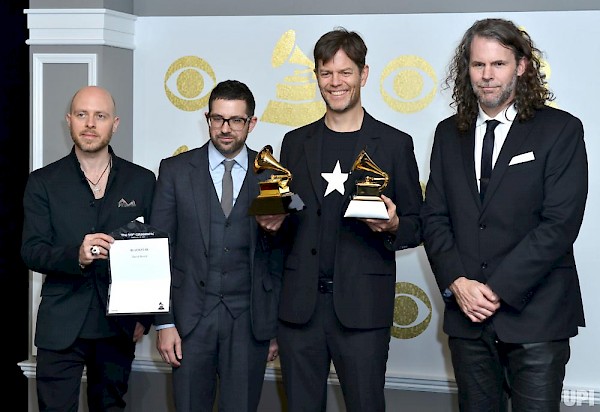 McCaslin (with Lindner, Guiliana and Lefebvre) at the 2017 Grammys, after accepting an award on behalf of David BowieJust for background, can you talk about your band a little bit, and about how you came to start playing together? I understand you’ve been something of a unit since Perpetual Motion or Casting for Gravity.
McCaslin (with Lindner, Guiliana and Lefebvre) at the 2017 Grammys, after accepting an award on behalf of David BowieJust for background, can you talk about your band a little bit, and about how you came to start playing together? I understand you’ve been something of a unit since Perpetual Motion or Casting for Gravity.
I initially met all the guys years ago, on the scene in New York. Tim and I actually met through a mutual friend, playing basketball! There was this Monday night basketball game in Manhattan that was mostly musicians. So, there was a year or two where I’d see him every Monday. We’d play hoops and talk about music, and we might have played one gig, like back in the '90s or late '90s or something. But David Binney, who has produced most of my records and suggested that I do an electric record [Perpetual Motion], was talking about who to use for it and he mentioned Tim. And I knew Tim, so Tim was really the first cornerstone of this project.
With Mark, I played a few gigs with him, but I think we initially met when he was playing with Avishai Cohen’s trio. I met him on the road, and we hung some and played a gig together with Omer Avital’s band. So, I also had Mark play on about half of Perpetual Motion, and then Antonio Sánchez played the other half of the record. But that was really the first time having Giuliana record my music. Part of it was just getting those guys [Giuliana and Lefebvre] together; I knew they were a great combination and Binney thought they would be a great combination.
I had this monthly gig at 55 Bar, and it was a chance for me to workshop the material. So, we did some gigs there to get it rolling. On Perpetual Motion, Adam Benjamin played keyboards. Then we started touring the project. I’d known Jason for years, also on the scene. I’d played in some of his big bands and knew about his trio, Now vs. Now, that Mark was in for a long time. I was a fan of that group.
I knew that Mark and Jason had this strong hookup, musically, and I got an offer from a festival—Jazz Baltica in Germany. Dave Douglas and I used to have a co-led project and we put together this gig with Jason, Mark, Tim. It was half Douglas’ music from his electric project and half my music from Perpetual Motion. The hookup between Jason, Mark and Tim felt so great; I wanted to continue developing that.
So, that’s kind of how it came together! Then, we just toured. I was also getting into electronica. I had a general understanding of Squarepusher and a few other things, but touring with those guys gave me a closer look at what their influences were. It helped me to broaden my understanding and get deeper into electronica. David Binney was also sending me things to listen to, so I just got deeper and deeper into it and felt more drawn to that aesthetic.
That’s interesting. I wouldn’t have necessarily expected that out of someone with your background.
Yeah, once we started touring, I was checking out what Mark was doing on the drums and thought, “Man! That’s a different language. I’m not familiar with that. What can I play that’s going to feel good with that?” Or with what Tim does on the bass; he’s acting like a DJ and has all these different pedals to manipulate the sound. He’s very interactive with the improviser, so things keep moving around. And back to David Binney, who’d send me things to listen to. So, I felt like my entry point was sort of through doing it and through my friends—what they were checking out—and finding my own way.
At the time the band went to record Beyond Now, how arranged or complete were the songs? I’m curious about how a musician would balance jazz’s improvisatory character with the scripted nature of studio processes.
With the original music I wrote for the record, those songs were finished in the summer of 2015, if my chronology’s right. We had some gigs, so I brought those tunes in and we rehearsed them a little bit and performed them. So, some of the song forms got developed in rehearsal and on the bandstand.
You know, I had forms in mind, but it was a whole other thing when we started performing and started doing things differently and getting new ideas. So, I would say that with the original music, I conceived of it and wrote it down—we called the charts I brought “mini-scores;” they had the bass line and the chords and the melody. But the forms evolved over the six months of performances we had leading up to the recording.
Similarly, what was your approach to arranging the cover songs, especially something like “Coelacanth 1”?
The cover tunes kind of had their own story. With “Warsawa,” we started playing it just after Bowie died, and it was a very intense time emotionally. We were playing a week in New York, and having that song as a way to channel all those feelings in a musical context was really a gift. I knew I wanted to record it. But in terms of the layout of that tune, that’s another one that kind of evolved over time. We’d play it down pretty similar to the form on Low, but then we opened it up for a free section at a certain point.
So, that one had kind of a built-in form. “A Small Plot of Land,” that tune of Bowie's from Outside, was the suggestion of David Binney while we were having a back and forth on different Bowie covers to consider. It was kind of an open tune; a lot of space. So, we were kind of envisioning more of an electro version. And again, we just played it a few times in the studio and might have rehearsed it once, and that was it.
“Remain,” by MuteMath, was one that we just did in the studio; we never rehearsed it. We mapped out the form, played the original version, and then just did it. I love the record that “Coelacanth 1,” the Deadmau5 tune, is on. And I just felt like that tune would be a good fit for what we do; the moody, textural thing on it.
With all those tunes, that’s the process for me—finding a tune that feels like it’s going to fit with what we do. Jason, talking about “Warsawa” in an interview, said that the song felt like a bridge between what Bowie did and what we do. I thought that was a good description; it bridges the two worlds.
“Coelacanth 1” (listen above) got my attention because of the challenge it seems like it would present to an improviser. The song, as Deadmau5 recorded it, is almost static and it would be on the player to supply the energy and motion; there are no changes—or really anything else—to coast or otherwise fall back on. How do you handle playing music like that?
You know, that’s a great question, and I agree with what you’re saying. My approach is to really try to get inside the tune as much as I can, so that what I play when I’m improvising is kind of coming from the vibe of the tune. With something like that, for example, I listened to the recording over and over and to the dynamics that happen. But you’re right—it’s a very static thing. I guess I was thinking about playing something that was coming from the right spirit of the tune. So, that meant not a lot of notes, more atmospheric and more moody.
It’s fun to do that, especially because a lot of the music we play is rhythmically active, and there’s tension and a lot of back and forth. There was just something that was very different. And I enjoy that; getting out of my comfort zone. Six years ago, the whole idea of me improvising in the more electronic realm was out of my comfort zone. And it challenged me to think about what I can do on the instrument: “Can I create different sounds that feel like they work with this concept? What language am I drawing from?”
To use a very extreme example, if I’m playing a lot of bebop lines, it’s not going to sound good in this context—to me. So, I’m looking for stuff that feels right to me for the context. And I base that on the spirit of the tune, try to let go of any preconceived things about what I have to play, and just try to be in the moment when I improvise. I listen intently to the band around me; being open to them and drawing ideas from what they play. I really try to have it come from the spirit of the song. So, that’s generally the approach I take.
In order to perform some of this music, did you have to kind of invent a new language or vocabulary?
Yeah, it’s kind of finding more vocabulary; thinking about it, going into the practice room and working to try to broaden it so that I have more to draw from, and so it feels honest and authentic to the aesthetic.
In doing that, did you try to appropriate aspects of other peoples’ playing? Or did you cultivate it somewhat independently?
Oh man, I definitely listen to music to draw inspiration. I guess I would say, specifically related to electronica, I’ve been listening to a lot that inspires me sonically. For the majority of the time with this thing, I’ve just been playing acoustic saxophone with no effects or pedals or anything like that, except for here and there in the studio. So I think one thing about that is that I had to listen to things looking for ideas. Now, as of the last few months, I’ve started to incorporate pedals and sonic manipulation of the saxophone in real time. But, still, I listen a lot; I’m always looking for inspiration. Sometimes, I feel like I’m super focused and feel that I’ve got a lot of ideas. But there are certainly times when I need an infusion of inspiration, so I’m always looking for new things to listen to.
The group’s performance of “Warsawa” retains the elegiac quality of the original, but comes off warmer and more personal. Is there a certain feeling or vibe that you guys look to project when playing it? Or will that change with every performance?
You know, I would say—can’t speak for the other guys in the band—but for myself, I just try to give myself over to the song. And also, honestly, I think about David Bowie when I play it to help me focus and get in the right frame of mind. That’s basically my process right there.
I know that Jason has developed some sounds he uses pretty consistently on that song, and I think that the aesthetic we’re going for has developed as we’ve played it. But, for myself, I think there’s a certain emotional gravitas or depth to that tune that I want to make sure it has every time we perform it. And that’s, I think, what I mean about thinking about Bowie and giving myself over to the tune. It’s really about being present in that moment when I play so I’m fully embracing the tune and what it means to me, and trying to express that to the audience.
It’s remarkable that someone like David Bowie, who I understand wasn’t a trained player or composer, would have the wherewithal to come up with the concept and melody for a song like “Warsawa” or for “Blackstar,” which features two disparate themes joined within a broader piece of music.
Oh, you’re right. And to add to that, that was all him! He sent me two different halves of the tune; I remember the email, which was something like, “We’ll bridge these two sections with a free improvisation in the middle, but we’ll do it in the studio.” And that’s exactly what happened. He really had a total vision for that; it was beautiful.
Did you get a sense for Bowie’s ear and the sorts of things that really piqued it?
My sense was that he was a person who could really process a lot of information quickly. He was someone who was able to process a lot of music and listen to a lot of different types of music, and find the things that inspired him pretty quickly.
I think he was a very instinctual musician, like when he would record a vocal track. When we would record a song, after we’d done some drum and bass fixes—if there were any of them to do—he would go in to do some vocal overdubs. And it was never anything that was written down or where he thought, “Okay, I’m going to add this in thirds.” It was all just instinctual; he just went in and started singing. And it was pretty amazing to behold. He would just layer these parts and add all these different things. So, I don’t know what his process was, but my sense was that he was feeling it. So, his ears were pretty great.
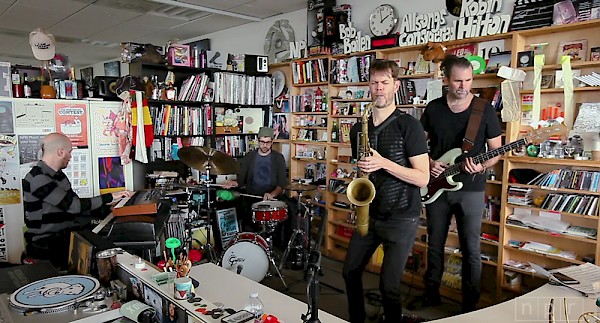 McCaslin (with Lindner, Lefebvre and Guiliana) performs on NPR's Tiny Desk Concert in Jan. 2017, a year after Blackstar's release. I remember David Torn talking about working with Bowie, and saying that in the studio, Bowie was remarkably hands-off; that he and Tony Visconti would come in with the outline of a song, and then let anyone they were working with just fill it in. Was that your experience?
McCaslin (with Lindner, Lefebvre and Guiliana) performs on NPR's Tiny Desk Concert in Jan. 2017, a year after Blackstar's release. I remember David Torn talking about working with Bowie, and saying that in the studio, Bowie was remarkably hands-off; that he and Tony Visconti would come in with the outline of a song, and then let anyone they were working with just fill it in. Was that your experience?
That was my experience; I would totally agree with that. They were both really good at putting the pieces together, letting people do what they do and playing to their strengths.
Upon reflection, have you been happy with how 'Blackstar' was received? If the appropriate elements of that record were attended to and appreciated in the right way?
Yeah, I have, generally speaking. Absolutely. I think some people see it as one of his great records, and I think it is. The concept is so great, the writing is so great, and I do think people recognize it as one of the great records.
I guess there was a lot of, like, “David Bowie does a jazz record,” which doesn’t tell the full story. Because, you know, we’re not a typical jazz band and part of that is that our musical language is so diverse, and that’s reflected on Blackstar. We were able to negotiate these different languages and put them together in a seamless way. And just his vision—I think this was reflected—but his vision on that record; it’s so fearless. I hope that he’ll get credit for that because it’s credit well deserved.
The story of how Maria Schneider brought Bowie to watch you at New York’s 55 Bar is pretty well known by now, but I was just curious: Is there any sort of collective wisdom among musicians about what to do when there’s someone in the audience you’ve really got to blow away and impress?
I just try to not think about it, be really present in the moment and do my very best. But If there’s collective wisdom, I don’t know about it. So if you find out, you tell me! [Laughs]

